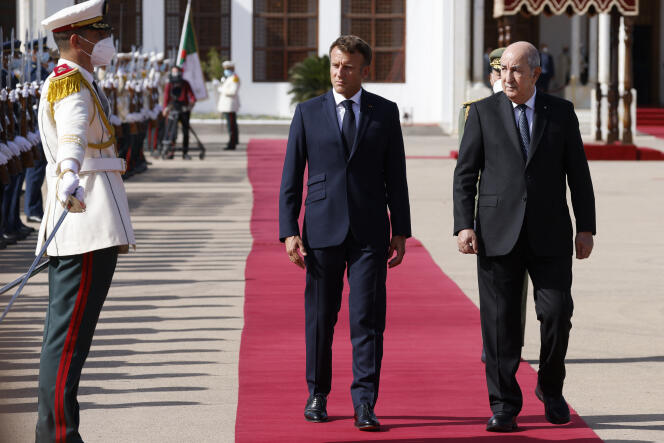Macron’s diplomatic balancing act between Algeria and Morocco faces crucial test

Macron’s diplomatic balancing act between Algeria and Morocco faces crucial test
As tensions rise in North Africa, French President Emmanuel Macron has launched a bold new diplomatic initiative aimed at reconciling relations with Algeria while maintaining France’s strong ties with Morocco.
This delicate balancing act has placed Macron in the challenging position of navigating historical grievances, territorial disputes, and regional instability.
Macron, known for his pragmatic yet often unpredictable approach to international relations, has been working to reshape France’s diplomacy in North Africa.
In a controversial move, Macron recently recognized Morocco’s sovereignty over Western Sahara, a decision that solidified ties with Rabat but strained relations with Algiers.
Now, Macron is turning his attention to Algeria, seeking to mend the rift through a focus on historical reconciliation.
Central to this effort is the goal of facilitating a state visit from Algeria’s recently re-elected president, Abdelmadjid Tebboune.
Focus on Historical Reconciliation
On Sunday, the Élysée Palace reaffirmed Macron’s commitment to “pursue the work of memory, truth, and reconciliation” with Algeria.
This initiative aims to ease the deep-rooted historical tensions between the two nations stemming from France’s colonial past in Algeria.
Macron met with historians to emphasize the importance of accelerating efforts made by the joint Franco-Algerian commission established in 2022.
The commission’s mandate includes the restitution of cultural assets and the opening of colonial archives, essential steps towards reconciliation.
However, France’s recent diplomatic stance on the Western Sahara conflict remains a significant obstacle to improving relations with Algeria.
While Algeria has long supported the Polisario Front, an independence movement advocating for Western Sahara’s self-determination, France’s endorsement of Morocco’s territorial claims has triggered a diplomatic freeze between Paris and Algiers.
In this context, Macron’s renewed push for historical reconciliation can be seen as an attempt to thaw relations with Algeria.
The French government hopes to pave the way for Tebboune’s long-anticipated state visit to France, which has been postponed several times but is now slated for autumn 2024.
Subtle Shift Towards the UN’s Position?
By revisiting the issue of historical memory with Algeria, Macron may be laying the groundwork for a broader diplomatic shift.
Analysts suggest that this focus on reconciliation could signal a subtle return to France’s earlier, more neutral stance on the Western Sahara conflict, aligning with the United Nations’ position on the issue.
This potential rebalancing of French diplomacy could help ease Algerian concerns over France’s growing alignment with Morocco.
Additionally, it may offer Macron an opportunity to address the heightened tensions in the region, exacerbated by the uncertainty surrounding Morocco’s future leadership due to the fragile health of King Mohammed VI.
The outcome of Macron’s diplomatic outreach will be closely watched, as it could reshape France’s role in North Africa and influence broader regional dynamics.
About The Author
dailymailafric
I am an avid African news observer, and an active member of Daily Mail Africa.
I’m Passionate about staying informed on diverse topics across the continent,
I actively contribute to publishing on political, economic and cultural developments in Africa.



